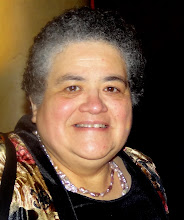
Justice William O. Douglas (1898-1980)
Some time ago, I had a student who was very diligent and hard-working; who always sat directly in front of me in the first seat of the middle row. Then she disappeared for a week; I became worried and sent her an e-mail. Nothing. When she reappeared after having missed four classes, she was wan and pale. After class, she stayed to tell me a hair-raising tale of a drug-dependent mother getting out of rehab but having nowhere to go because she had been in and out so often, no one else but this one daughter would have anything to do with her. After knocking herself out to find a place for her, her mother had taken off and overdosed. It was a long, sordid tale, and it was heartbreaking to see this young woman struggling to deal with it. I spent many hours listening more than anything else. I am not a psychologist and when I hear such stories, I know I am not equipped to help in any concrete way, and I refer them to our student psychological services or another agency in the university that can help. But I always listen.
For the rest of the semester, I would often find her sitting on the chair outside my office door, studying. She felt safe there, she said. I was happy that she felt that way.
According to a report published in U.S.News and World Report published in August, one-third of our students drop out after their first year. Half of our students will not graduate from college. [Dropouts Loom Large for Schools, http://www.usnews.com/articles/education/best-colleges/2009/08/19/dropouts-loom-large-for-schools.html] These are shocking statistics but they are unchanged for three decades. There are many reasons: The loneliness and homesickness of being away from home; the overwhelming financial pressures--even a state university is an expensive proposition, and if you drop out, the debt must still be paid. There are the many temptations and distractions--the drinking that starts on Thursday nights and continues through the weekend so Friday classes are missed and Monday classes are attended through a hung-over haze. Marijuana and other drugs, some of which I have never heard of, flow freely on college campuses. Members of football and basketball teams have punishing practice and travel schedules that interfere with their schoolwork.
Many students come to college expecting a training in a specific skill but lack the maturity to make the best of the resources offered here. Some are overwhelmed and never get a handle on things. And what we in the humanities wish to impart--the skills for lifelong learning--may seem too attenuated to them to have any value. Some of them, like the student above, are dealing with life crises that we can't even imagine.
The financial burdens result not only in enormous debts that burden them long after they have graduated but also require them to work long hours just to keep body and soul together. I have students who come to class bleary-eyed because they worked the night shift and they're exhausted. Others are raising children and get up at 4 in the morning to study for a couple of hours before waking the kids to get them ready for school.
From my perspective, I cannot imagine how they can learn when they have so little time to study. Moreover, they are not trained to study as we were. People can make fun of the hours the nuns had us spend diagramming sentences, but we know our grammar. For me, one of the great joys of seventh and eighth grade was a program called SRA (for Science Research Associates) which was pioneered in the schools in the 1950s. Basically, it was a system of color-scaled cards with reading selections and questions on the readings. The better your reading got, the higher-level color you would advance to. It was very competitive but only with oneself. For me, it was the incentive to finish other work quickly so I could get to the SRA cards. It was fun and I learned about people and things I never would have encountered otherwise. I remember one card in particular about the late Supreme Court justice, William O. Douglas, who was an environmentalist. He had overcome childhood asthma by becoming an avid outdoors-man. If I hadn't read about him there, I might never have encountered him. I went to law school and found him once again, only to find that he was a First Amendment absolutist as well. I guess that information was too political for an eighth grader!
Many of my students don't know how to read effectively. They tell me they hate to read; that the books they read in my classes are the first complete books they've ever read. When I heard that for the first time, I thought, "So what are you doing in college?" I have heard it now so often, that I find myself wondering what has happened in the primary and secondary schools for this to be the case.
A class lecture and discussion will not make them competitive with students who've had the time to put in reading or working in the library. How do you keep from dumbing down your coursework? I talk with friends who teach in the exclusive private schools and they don't have the same issues. The problem is, my students will be competing with those well-prepared students, and they will be laboring under that disadvantage.
Somehow. we have to find a way to bridge the gap. (917)

No comments:
Post a Comment